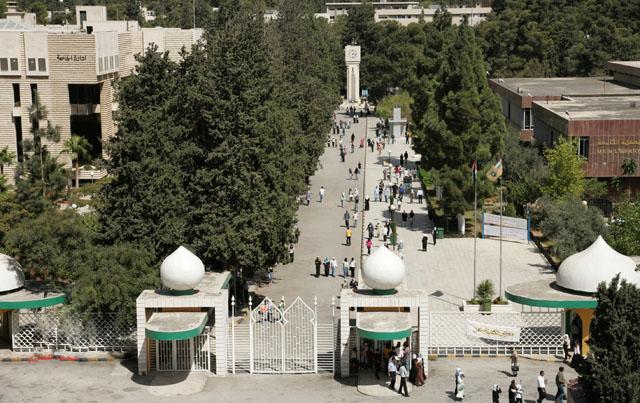You are here
Ensour calls for reforming higher education
By JT - Aug 10,2014 - Last updated at Aug 10,2014

AMMAN — The results of the General Secondary Certificate Examination (Tawjihi) revealed the need to develop higher education regulations and university admission policies, Prime Minister Abdullah Ensour said on Sunday.
During a meeting with presidents of public universities and members of the Higher Education Council (HEC) and the Higher Education Accreditation Commission (HEAC) at the Prime Ministry, Ensour said this year’s results represent a qualitative leap in the reform of public education, noting that its outcome will reflect on the level of higher education, the Jordan News Agency, Petra, reported.
Forty per cent of students who sat for the Tawjihi summer session passed, compared with a pass ratio of 56.3 per cent last year, according to Education Ministry figures.
Of the 57,141 students who sat for the exam, 22,974 students passed.
At a press conference earlier this month to announce the results, Education Minister Mohammad Thneibat said the session’s outcomes show the actual abilities of students amid the “unprecedented” monitoring measures taken in cooperation with different apparatus.
Noting that the results relieve pressure on universities as they can select students on a fair basis, Ensour called on the HEC to reconsider the exceptions in admission policies by scrapping some quotas and enhancing others, Petra reported.
Describing the current quota system as unfair, he said some quotas are necessary to offer university seats to students from underprivileged areas where classrooms and quality education are few and far between.
The premier added that university teaching staff and HEC members should start with themselves and reconsider the admission basis for their children, noting that a courageous position is needed to adopt fair policies, after which the question of quotas should be re-examined.
Several public university seats are granted to the children of university staff members, Jordan Armed Forces officers and students from underprivileged areas under the system of quotas.
Ensour urged the HEAC to stop opening new faculties and to support academic specialisations that meet the actual needs of the labour market.
“Calls to cancel the Tawjihi are impractical, unrealistic and cannot be adopted at present,” he added.
Scrapping Tawjihi, the premier said, will leave universities responsible for holding admission exams, and this course of action will be difficult at present, due to the high costs that universities will have to incur.
Speaking at the meeting, Higher Education Minister Amin Mahmoud said the Tawjihi has now regained its credibility, thanking all who have contributed to that result.
Thneibat said the changes in Tawjihi are part of a strategy to reform the national exam, adding that this year’s results were “100 per cent real”.
Reiterating that the Tawjihi results present a real chance to develop general and higher education, university presidents stressed that public education in Jordan suffers from real problems that require realistic and applicable solutions.
Related Articles
AMMAN — The General Secondary Certificate Examination (Tawjihi) winter session starts on Wednesday and concludes on January 12, with 158,819
AMMAN — The Higher Education Council (HEC) on Tuesday decided to accept 58,125 students at public universities in the regular programme.The
General Secondary Certificate Examination (Tawjihi) students in Jordan will be able to apply online to all the Kingdom’s public universities starting Wednesday morning and until Saturday midnight, a Ministry of Higher Education official said on Sunday.











